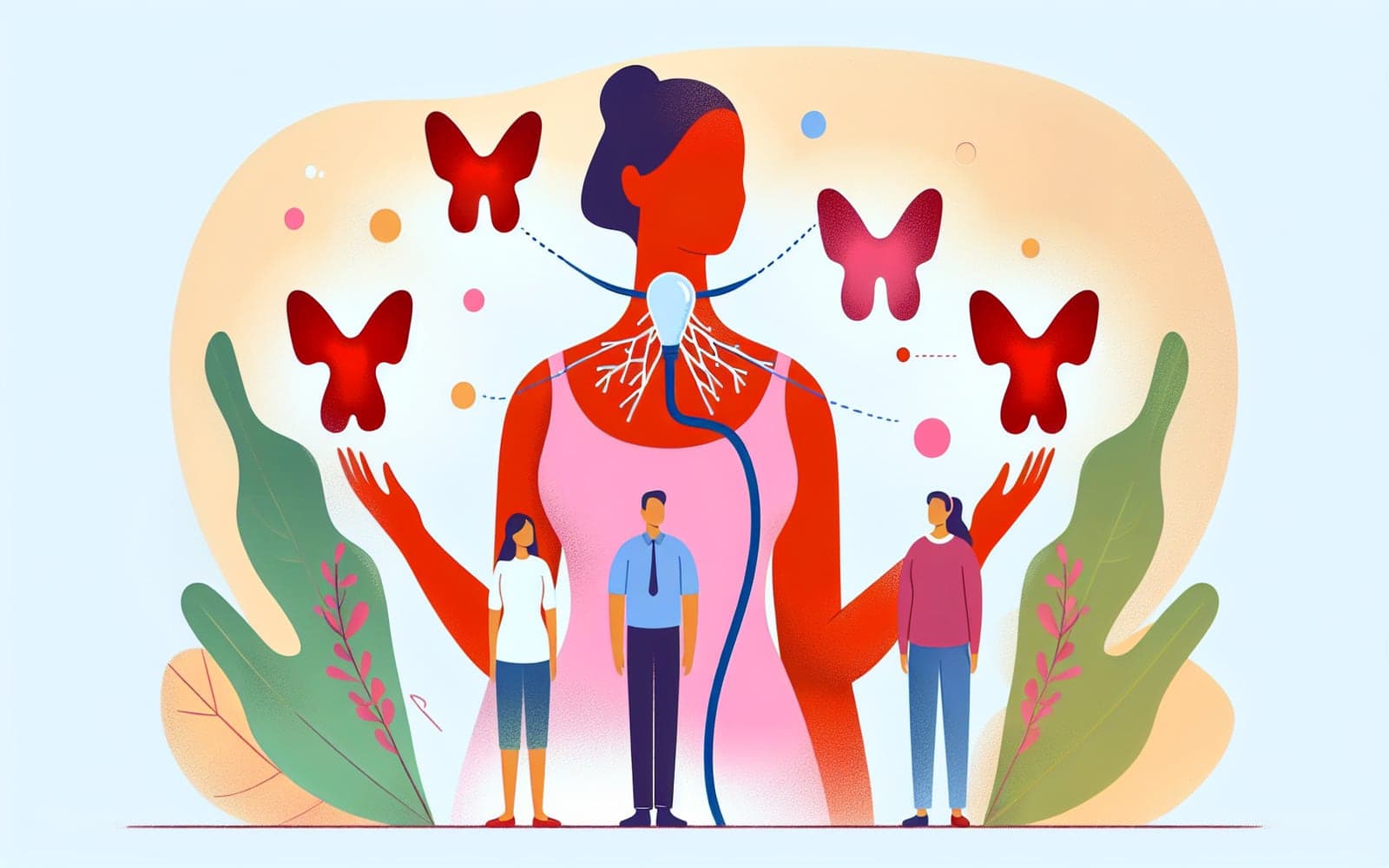Are You at Risk? Factors That Up Your Chances of Thyroid Nodules
Published: Sep 04, 2024
While thyroid nodules are common, certain factors can increase your likelihood of developing them. Understanding these risks can help you stay proactive about your thyroid health.
Contents
The Gender Factor: Why Women Are More Prone
Women are about three times more likely to develop thyroid nodules than men. This gender disparity is likely due to hormonal influences, particularly estrogen. Pregnancy and menopause, times of significant hormonal shifts, can also impact nodule development and growth.
Age Matters: The Older You Get, The Higher the Risk
As we age, our chance of developing thyroid nodules increases. By age 60, about half of all people have at least one thyroid nodule. This is partly due to cumulative exposure to environmental factors and natural changes in thyroid tissue over time. However, it's important to note that most of these age-related nodules are benign.

Radiation Exposure: A Known Thyroid Irritant
A history of radiation exposure to the head and neck significantly increases nodule risk. This includes radiation therapy for other cancers or conditions in the past. Importantly, dental X-rays and other diagnostic imaging don't pose this risk – we're talking about higher levels of radiation exposure.
Frequently Asked Questions
Severe iodine deficiency can increase risk, but it's rare in developed countries.
There's no direct link, but stress may impact overall thyroid health.
No, most risk factors increase nodule risk, not necessarily cancer risk.
A healthy lifestyle may help, but many risk factors are beyond our control.
Key Takeaways
While you can't change some risk factors, awareness can lead to earlier detection and better management of thyroid nodules.
Concerned about your thyroid nodule risk? Connect with Doctronic to discuss your personal risk profile and potential next steps.Related Articles
References
Hegedüs L. Clinical practice. The thyroid nodule. N Engl J Med. 2004;351(17):1764-1771.
Durante C, et al. The Diagnosis and Management of Thyroid Nodules: A Review. JAMA. 2018;319(9):914-924.
Always discuss health information with your healthcare provider.

